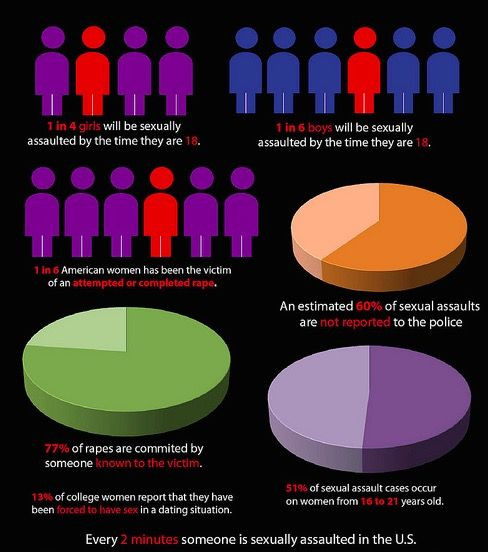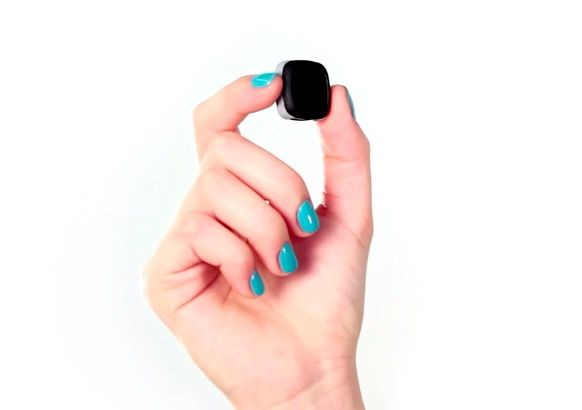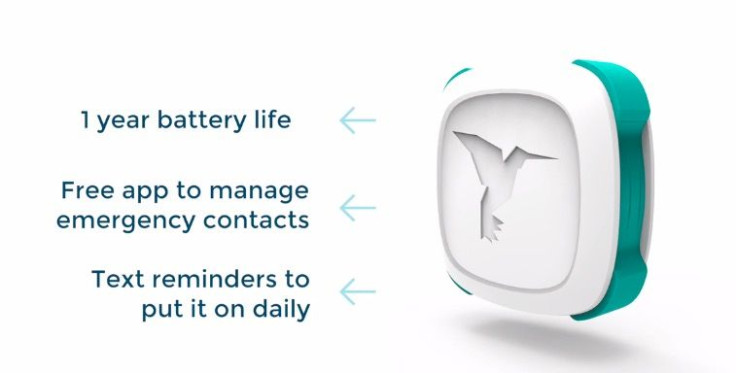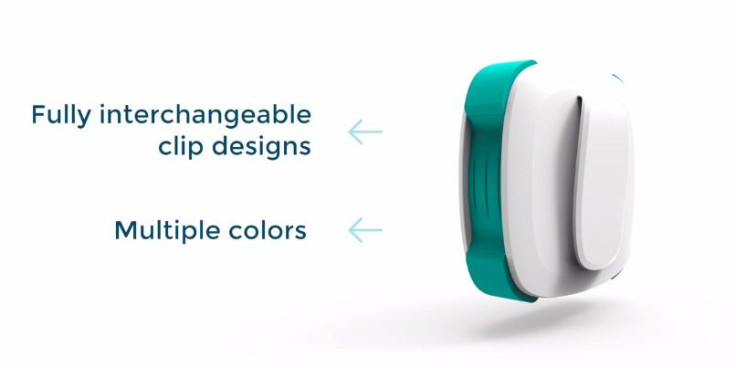Revolar's Kickstarter campaign offers an innovative new personal security device that alerts loved ones when you are in trouble and could save a life.
In two months, a girl named Stephanie will graduate nursing school and start a new life in Colorado. It will be a happy time. A time for celebration. A time for joy. But for Stephanie, life hasn’t always been so joyful.
At the age of 14 she was sexually assaulted by a group of people in a home where she thought she was safe. Two years later, she was assaulted again; this time in a parking lot by a total stranger as she was leaving a therapy session. She was less than two miles from her home.
Stephanie’s story, though heartbreaking, is a common one in the U.S. According to a 2012 report by the Center For Disease Control, one in five women in the U.S. are raped at least once in their lifetime. Of those women, 31.5 percent will suffer physical injury as a result of the attack. In addition, four out of five rape victims suffer from lasting physical or psychological conditions. They are 13 times more likely to abuse alcohol, 26 times more likely to abuse drugs and four times more likely to contemplate suicide. An estimated 32,000 pregnancies occur each year as a result of sexual assault.

Jacqueline Ros, CEO of Revolar, is Stephanie’s sister. Like many relatives of sexual assault victims she wanted to do something to help herself, help others. Ros developed an innovative personal safety device, Revolar, which launched a Kickstarter campaign March 24.
“I grew increasingly frustrated after my sister’s second attack,” Ros told iDigitalTimes. “I couldn’t believe that something like that had happened again – especially so soon. It made me wish there was some way my sister could have had a ‘magic button’ to press so we could have known what was happening to her.”
The idea of the ‘magic button’ stuck with Ros, a promising young International Studies major at the University of Florida. As she researched what was happening to women both in the United States and around the world her eyes became open to the need for tools to help keep women safe.
Meanwhile, another situation occurred involving her sister serving as the catalyst for Ros’ Revolar technology. Ros’ sister left school during her senior year of high school due to the trauma from the attack and finished her education through homeschooling. She began carrying pepper spray when she went out in public, including to a local testing site for homeschooled children.
“One day, she entered a testing site with pepper spray on her key chain. When the testing facilitators saw it, she was immediately suspended from the program for over a week, received a fail on her exam and had her ‘weapon’ confiscated,” said Ros. “All that just for bringing pepper spray to a testing site. Outside of the humiliation she felt, the fact my sister couldn’t keep her one, tiny source of protection left her feeling incredibly helpless.”
It was at that moment when Ros began searching for an alternative form of protection her sister could keep on her that wouldn’t be viewed as a weapon.
Her search yielded nothing.
“I remember thinking to myself, ‘man, if she could have just pressed a button, I would have know she was in danger’,” Ros said.
It was from this magic button idea that Revolar was born.

Revolar is a tiny quarter-sized personal safety device marking a new direction in wearable technology. While many wearables track things like steps or sleep, Revolar's job is to help keep users safe. Revolar provides a non-violent way to increase the personal security of its users by starting communication immediately. If users find themselves in danger, simply pressing the ‘magic’ button on the device will send an Emergency Alert message with location information to selected loved ones and friends set up in the accompanying smartphone app. Once activated, Revolar, will send updated location and alert information to emergency contacts every three minutes, in case earlier messages were missed.
Revolar is a discreet technology and can be pinned onto any part of a user’s clothing. It features a 360-degree button so users can always find some kind of grip. The device will come with a variety of customizing options and provide several features besides just alerting the emergency contact list. The device can be set to produce a loud noise when activated or even record audio. Revolar will first roll out to Android and iOS users, but will soon become available on all platforms, with or without a smartphone.


Some may wonder how helpful Revolar will be since it doesn’t actually stop an attack from happening, but for Ros, the device is about more than just fending off attacks. It’s part of a bigger mission to build communication between loved ones and educate people about the need for empathy between genders.
“It took my sister over a year to tell us what happened to her,” said Ros. “For over a year she had to keep all that shame, all that pain and all that anger to herself and it destroyed her health and physical well-being. If building something like Revolar means that the conversation starts instantly instead of the survivor having to get the courage to startthat conversation, then I think that we are going to be able to help.”
Ros asked her sister how she would feel if Revolar had been available during her attacks, and was told it would have made a world of difference.
“When I was first researching the patent,” Ros shared, “I asked my sister, ‘would this actually help? Should I do this?’ and she just started crying. She said just knowing that someone was on their way or at least knew what was happening to her would have made her feel so much less terrified. It was her reaction that has kept me going all these years. If she had not have been as supportive, I wouldn’t have continued. But she believed to her core that this would make a difference.”
Ros’s sister isn’t the only person who believes Revolar has the power to make women around the world feel safer. When Basant Motawi, Founder of Aspire, a non-profit in Egypt teaching women self-defense, heard about Revolar she asked, “When can you get it to us? How soon?”
According to a 2013 UN report, Egypt has one of the highest rates of sexual harassment and assault in the world with an estimated 99.3 percent of women falling victim. For this reason, the UN named Egypt one of the worst countries in the world for women to live. But technologies such as Revolar, says Motawi, can increase awareness about the problem of sexual assault against women and possibly lower the number of incidents in Egypt as well as throughout the rest of the world.
“I feel passionately about the fact that not all men are violent or attackers,” said Motawi. “We know that it is repeat offenders committing these crimes and we are seeing more and more men and people in general becoming activists as they become more aware of the issues.”
The passion and vision behind Ros’ project has attracted a formidable team for her fledgling company -- including DARPA funded security researcher and ethical hacker, Don Bailey. Bailey joined Ros’ team after hearing about her venture at a pitching event. Bailey approached Ros about her device, explaining that while it was a good idea it needed to be built securely so as not to place users at the risk of being unknowingly hacked or traced.
Bailey, sponsored by DARPA, has spent the last year hacking “Internet of Things” devices and developed a cutting edge IoT platform that ensures the integrity of user’s data. It is upon this platform that Revolar will make its debut,. Bailey is currently authoring a book for McGraw Hill on the Internet of Things, based of the extensive DARPA research he has conducted.
“It’s been incredible to have Don on the team,” said Ros. “Because of his work, the product has evolved so completely we can now say we have ground to cloud security. By building Revolar on Don’s IoT platform, we are protecting not only the person, by allowing them to connect to their loved ones, but also keeping their data secure and untrackable.”
In addition to providing a personal security device built on a cutting edge IoT platform, Revolar also designed its technology to educate emergency contacts on how to react if an alert comes through. When an emergency alert is received, it is accompanied by a number of steps the contact should take in order to be most effective. Ros understands the need to educate family and first responders on how Revolar works and what the appropriate response will be.
“In designing Revolar, I reflected on my sister’s case, and remembered how I always said, ‘man if she would have pressed that button, I would have run over there and I would have saved her,” said Ros. “But that was such a ridiculous notion because I am 5’4 and I would not have been able to do anything for for her in that first situation other than put myself in danger as well. So we have to train them how to react -- how to be those great emergency contacts. I would hate for the emergency contacts to accidentally be put in danger as well.”
The Kickstarter launched Tuesday, March 24, hopes to raise $75,000. Revolar has already been picked up by the Foundry Group during its angel round of funding. If the campaign is successful, Ros and the Revolar team hope to see the device in the hands of users by Q4 2015 or Q1 2016.
“We are making this with the best of intentions,” said Ros. “Our goal is constant innovation and we strive for excellence, but beyond that, we want to start a conversation. We want to be able to talk about subjects like sexual assault. We want to communicate the fact that not all men are doing these things -- that it’s these repeat offenders perpetuating the problem. I do believe that we can teach men to not rape; but education takes time and in the meantime, I don’t want to risk my loved ones,” said Ros.
To learn more about Ros’ start-up or to support her cause, visit Revolar’s Kickstarter campaign page, here.














![[EG April 19] Best 'Stardew Valley' Mods That Will Change](https://d.player.one/en/full/226012/eg-april-19-best-stardew-valley-mods-that-will-change.png?w=380&h=275&f=955520b8313253ee3c39c791f6210f38)



